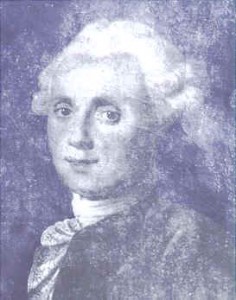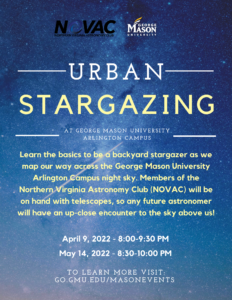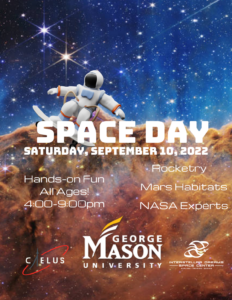This shower runs annually from October 2 to November 7. It peaks this year on the night of October 21 and the morning of October 22. The Orionids are meteors left behind in the wake of Halley’s Comet. The nearly full moon will block some of the fainter meteors this year, but the Orionids tend to be fairly bright so it could still be a good show. Best viewing will be from a dark location after midnight. Meteors will radiate from the constellation Orion, but can appear anywhere in the sky.
Keep your fingers crossed! Every now and then the Taurid meteor shower — normally modest — produces spectacular fireballs visible even in bright moonlight. Most recently this happened in 2008. Since the meteor stream is rather spread out in space, Earth takes several weeks to pass through it, causing an extended period of meteor activity, compared with the much smaller periods of activity in other showers. The Taurids are also made up of weightier material, pebbles instead of dust grains. The thin crescent moon will set early in the evening leaving dark skies for viewing. Best viewing will be just after midnight from a dark location far away from city lights. Meteors will radiate from the constellation Taurus, but can appear anywhere in the sky.
The Leonids is an average shower, producing up to 15 meteors per hour at its peak. This shower is unique in that it has a cyclonic peak about every 33 years where hundreds of meteors per hour can be seen. That last of these occurred in 2001. The Leonids is produced by dust grains left behind by comet Tempel-Tuttle, which was discovered in 1865. The shower runs annually from November 6-30. It peaks this year on the night of the 17th and morning of the 18th. The waxing gibbous moon will set shortly after midnight leaving fairly dark skies for what could be a good early morning show. Best viewing will be from a dark location after midnight. Meteors will radiate from the constellation Leo, but can appear anywhere in the sky
Planning on staying up late (or waking up early) for this one. The Geminids is the “king” of the meteor showers. It is considered by many to be the best shower in the heavens, producing up to 120 multicolored meteors per hour at its peak. It is produced by debris left behind by an asteroid known as 3200 Phaethon, which was discovered in 1982. The shower runs annually from December 7-17. It peaks this year on the night of the 13th and morning of the 14th. The first quarter moon will set shortly after midnight leaving dark skies for what should be an excellent early morning show. Best viewing will be from a dark location after midnight. Meteors will radiate from the constellation Gemini, but can appear anywhere in the sky
The Ursids is a minor meteor shower producing about 5-10 meteors per hour. It is produced by dust grains left behind by comet Tuttle, which was first discovered in 1790. The shower runs annually from December 17-25. It peaks this year on the the night of the 21st and morning of the 22nd. This year the glare from the full moon will hide all but the brightest meteors. If you are extremely patient, you might still be able to catch a few good ones. Best viewing will be just after midnight from a dark location far away from city lights. Meteors will radiate from the constellation Ursa Minor, but can appear anywhere in the sky.

All of the weather forecasts agree that Saturday evening will be cloudy. They disagree only on how early rain will begin. Not suitable conditions for observing the night sky so tomorrow’s public night is canceled.
Clear skies for the future,
R J ‘Tree’ Greenwood
Site Coordinator
Please read the C.M. Crockett Page for park details. Details will be updated for the Messier Marathon too!

NOVAC is cancelling in-person events through May 10 in accordance with CDC recommendations.
Please read the C.M. Crockett Page for park details. Details will be updated for the Messier Marathon too!

RSVP here.
Members of the public are invited to view the urban night sky over George Mason University’s Arlington Campus through the telescopes of NOVAC volunteers.
Observing will take place on the outdoor plaza in front of Van Metre Hall (Schar School of Policy and Government). Visitor Parking is available in the Van Metre Hall Garage (hourly rate). There is also metered street parking around the campus.
As a reminder please ask permission from the telescope owner before using. Please monitor your children if they’re around expensive astronomical equipment.
Don’t forget to dress warmly. Please check the weather forecast.
Note: This outdoor event is weather-dependent and may be cancelled because of significant cloud cover or precipitation.

THIS EVENT IS CANCELED AND WILL BE RESCHEDULED FOR LATER THIS SUMMER.
RSVP here.
Members of the public are invited to view the urban night sky over George Mason University’s Arlington Campus through the telescopes of NOVAC volunteers.
Observing will take place on the outdoor plaza in front of Van Metre Hall (Schar School of Policy and Government). Visitor Parking is available in the Van Metre Hall Garage (hourly rate). There is also metered street parking around the campus.
As a reminder please ask permission from the telescope owner before using. Please monitor your children if they’re around expensive astronomical equipment.
Don’t forget to dress warmly. Please check the weather forecast.
Note: This outdoor event is weather-dependent and may be cancelled because of significant cloud cover or precipitation.


